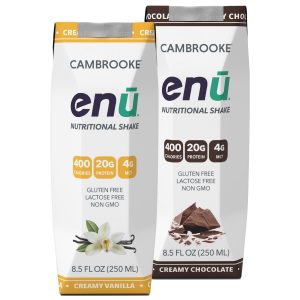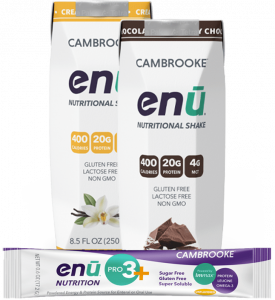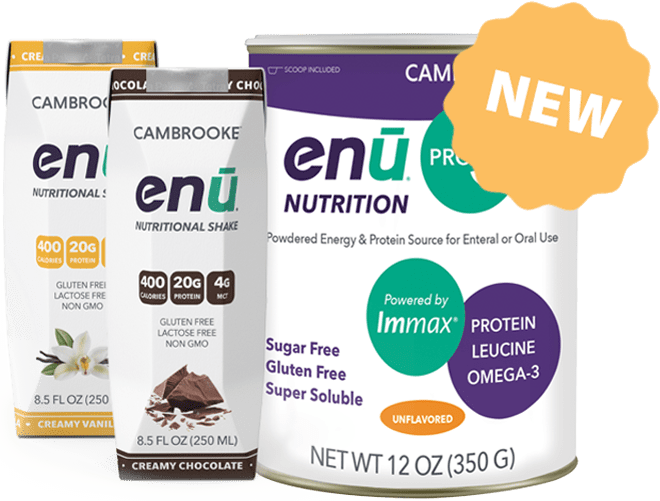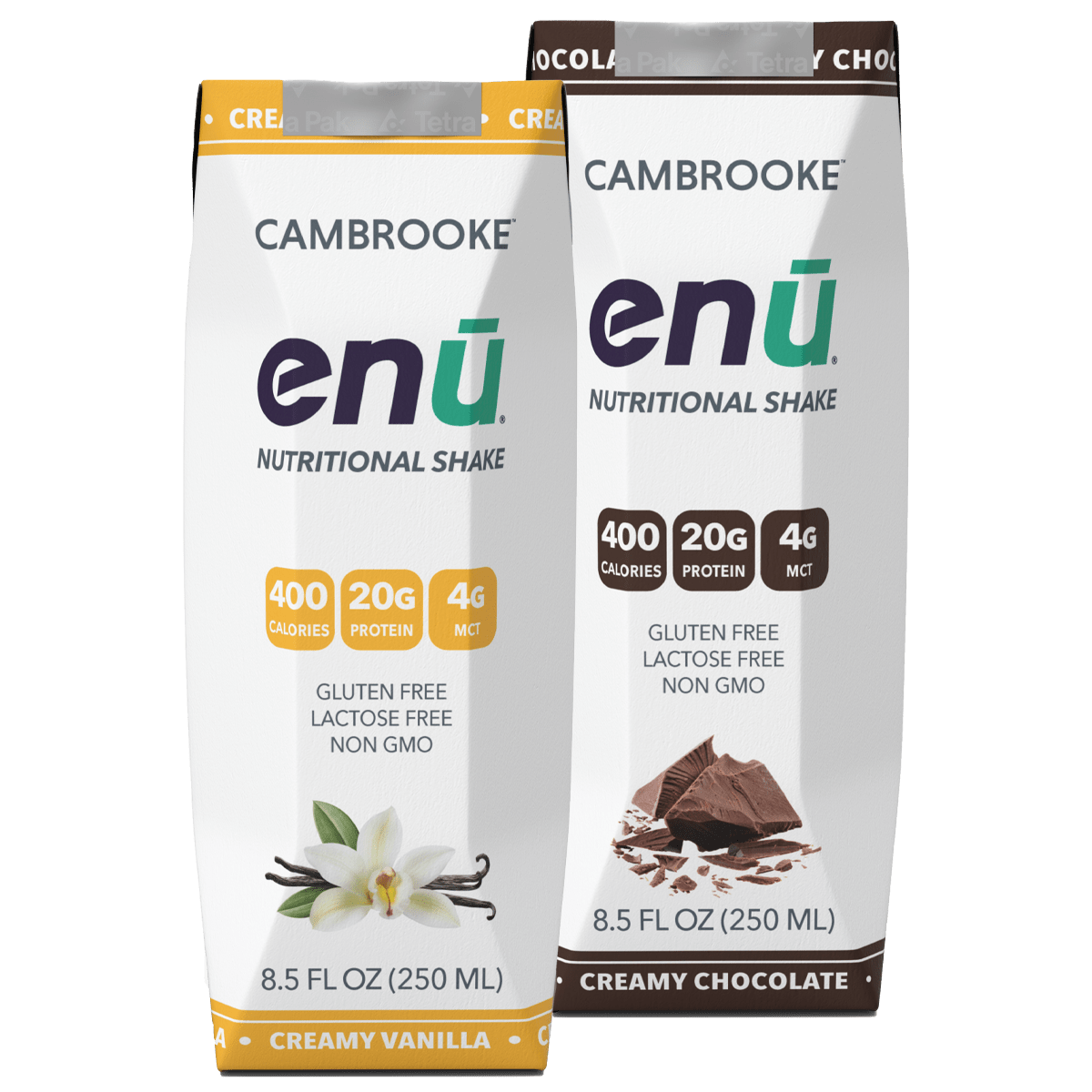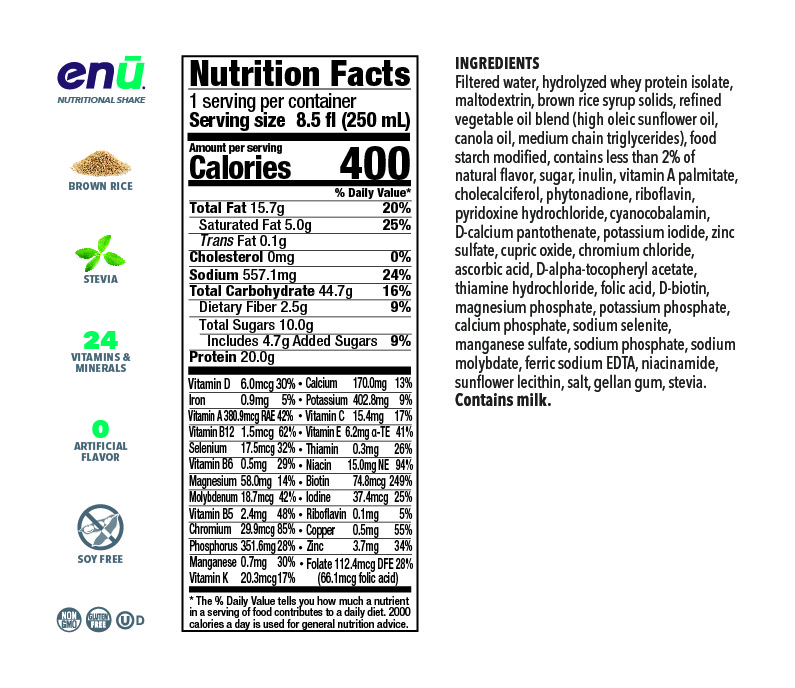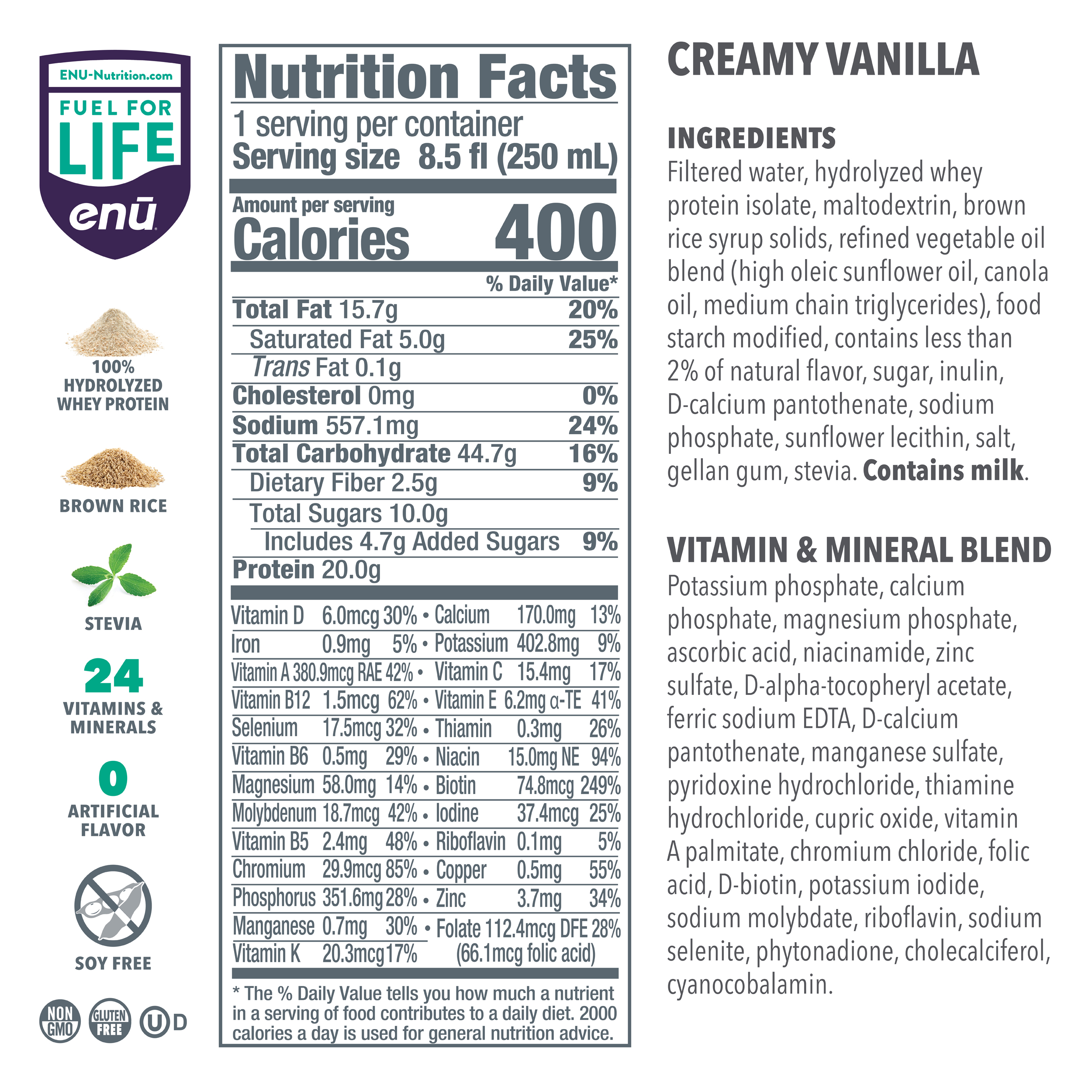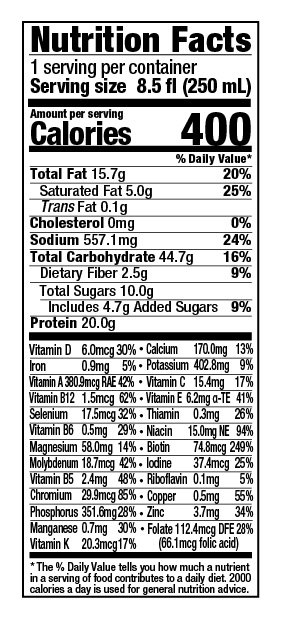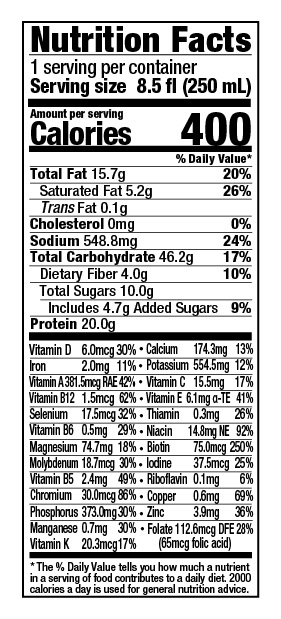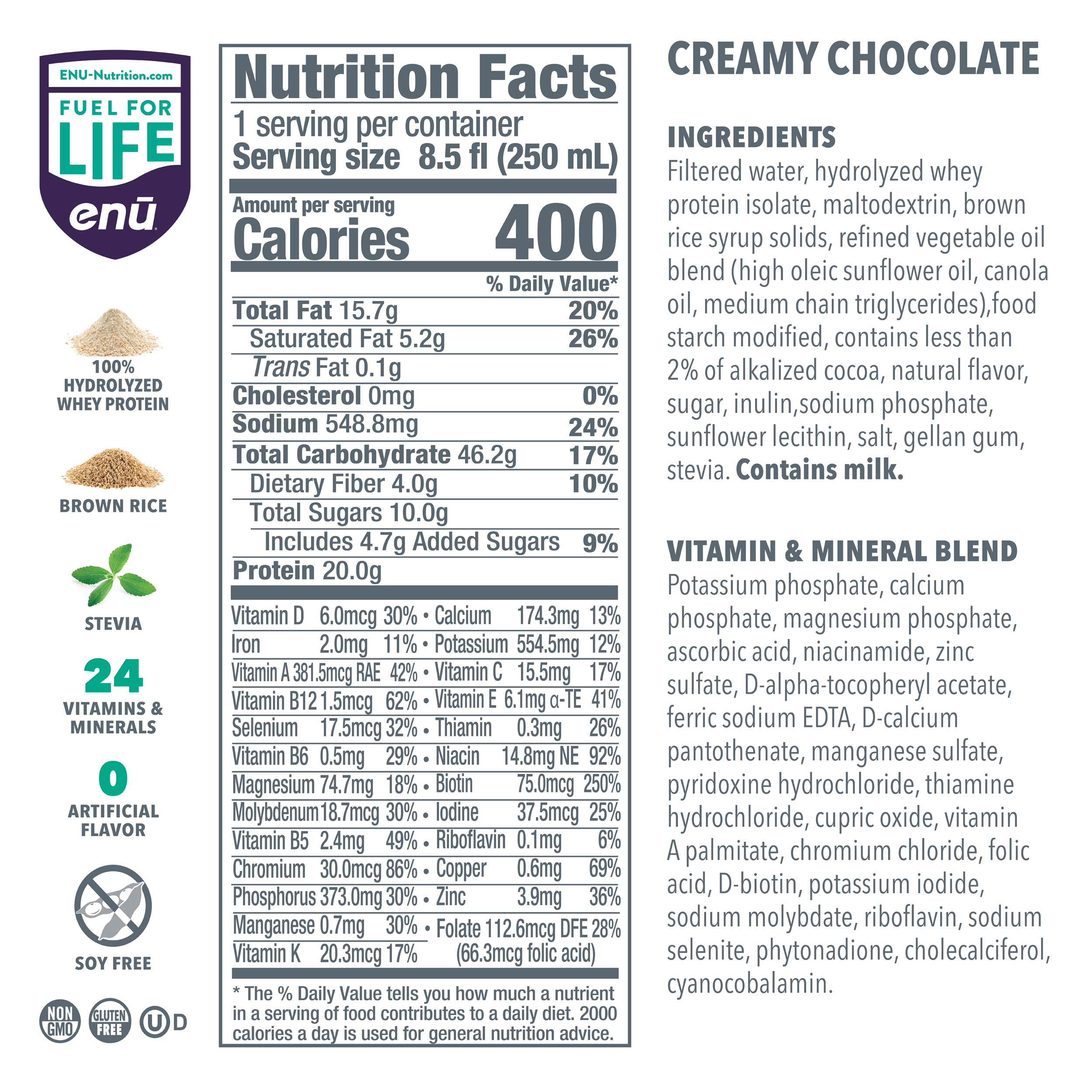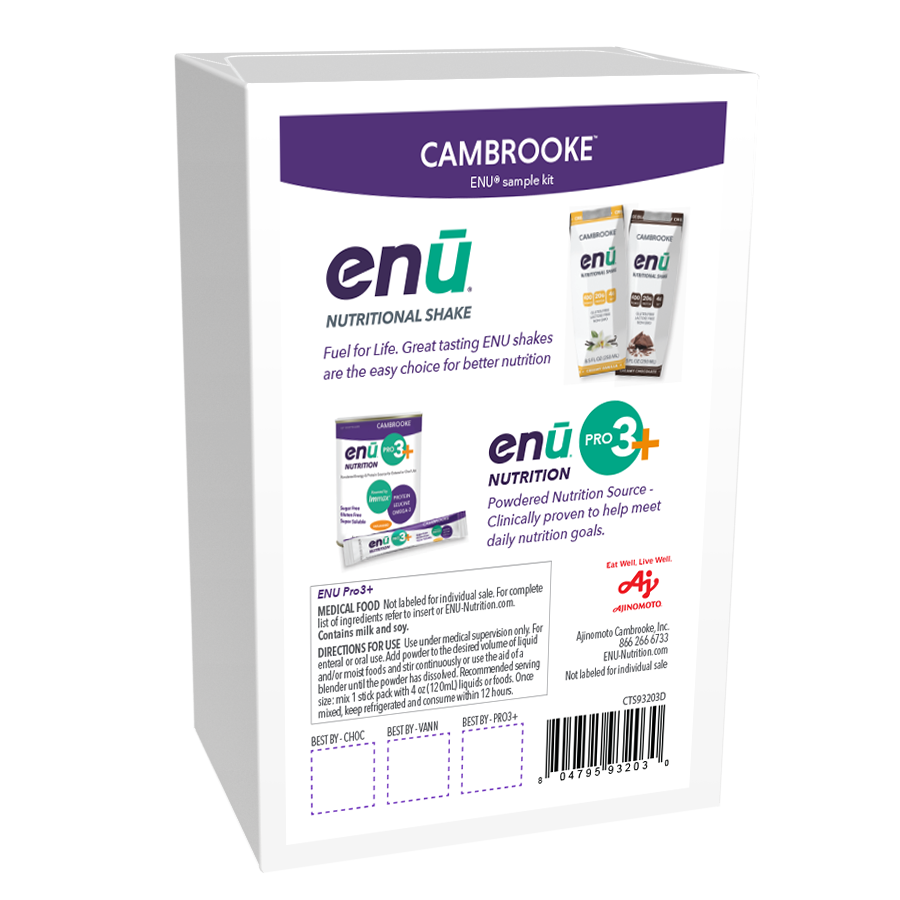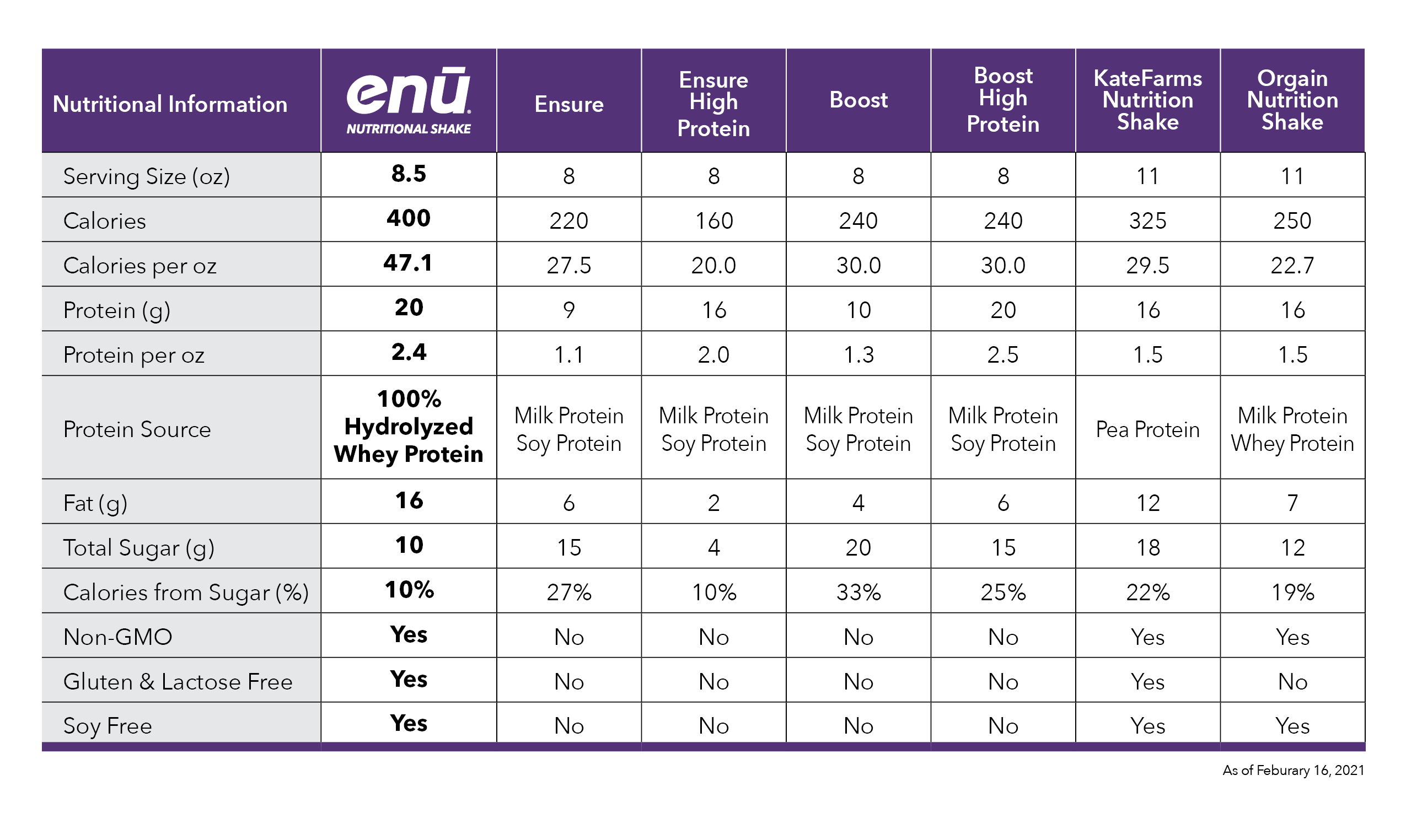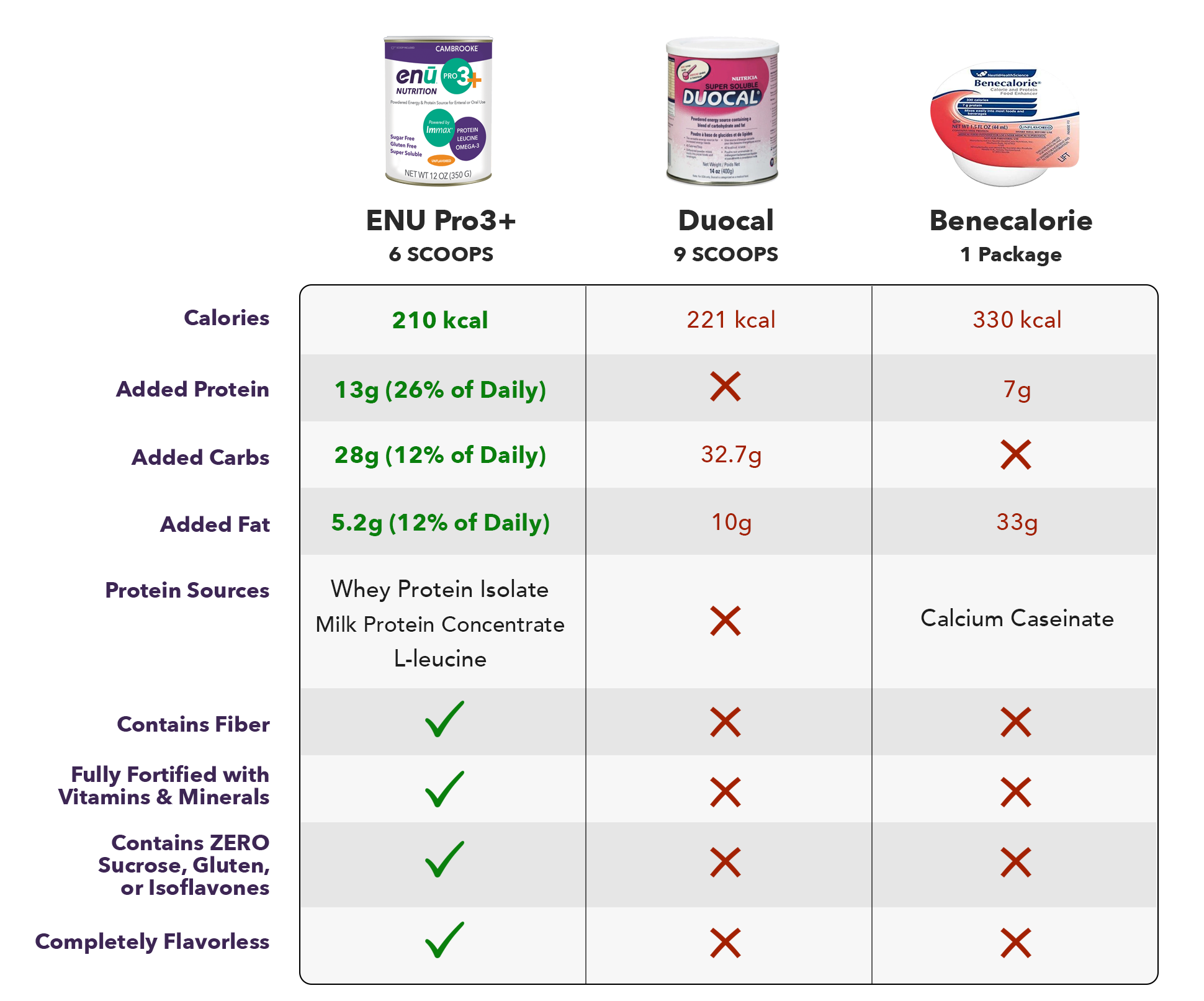
Get a FREE
ENU Intro Pack*
*Just Pay $2.00 Shipping
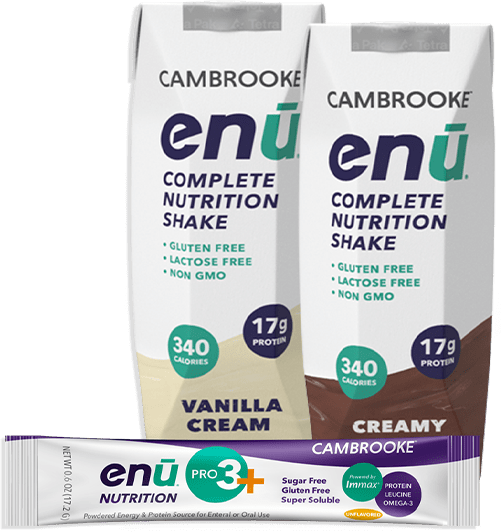
How Does Cystic Fibrosis Affect My Nutritional Needs?
Living with cystic fibrosis is a constant challenge. This serious illness affects some of the most important systems in the body, impeding the patient’s ability to breathe or digest foods and leading to a host of complications, including unwanted weight loss, malnutrition, failure to thrive, and many other serious concerns. Because of these effects, those with cystic fibrosis (CF) often have to rely on medical nutrition support, the strategies for which can vary from person to person depending on the exact nature of their illness. However, there are some fundamental guidelines that people with this condition can follow to help them avoid becoming malnourished; to find out more, keep reading as the people at ENU provide some details.
How Cystic Fibrosis Affects the Body
Cystic fibrosis is a genetic disease, which means that those who have it generally have to deal with its effects for their entire lives. The condition is caused by a defect in the cystic fibrosis transmembrane conductance regulator (CFTR) gene, which in turn causes the CFTR protein to behave incorrectly. In a healthy individual, this protein moves chloride to the surface of the cell in order to attract water, which is used to dilute the mucus in the respiratory and digestive systems; if the protein malfunctions, as it does in those with cystic fibrosis, the result is significantly thicker mucus in those systems, leading to some serious health issues.
For one thing, those with CF tend to experience trouble breathing thanks to the viscous mucus in their lungs, and because this substance tends to trap bacteria and other contaminants, these patients are also much more vulnerable to infections than a healthy person. These infections can exact a toll on those with CF; not only can they require constant treatment, but they increase the body’s energy needs, making it much harder to maintain a healthy weight with CF.
And the impact of cystic fibrosis on the digestive tract can be even more significant. This thickening of the mucus also occurs in the pancreas of patients with cystic fibrosis, which is at the heart of many of the health problems linked to cystic fibrosis. This mucus creates blockages in key areas of the pancreas, which prevents this critical organ from serving one or more of its functions.
Normally, the pancreas supplies crucial enzymes to the upper intestine that help you further break down food that has left the stomach, along with fluids that move food through the intestines and a natural antacid that neutralizes the stomach’s digestive juices. However, people with CF typically do not get the enzymes they need from the pancreas because of the blockages there, which means that food is not broken down for use by the body and is instead passed as stool, effectively preventing the absorption of the nutrients that keep us healthy.
The Effects of Cystic Fibrosis on Nutrition
Because so much of the food consumed by someone with cystic fibrosis leaves the body without being properly digested, those with this condition often fail to get the nutrients they need to thrive. This effect has an especially big impact on fat absorption – a serious concern because of the number of calories usually supplied by fats and because this key macronutrient is necessary to absorb certain vitamins: namely, the fat-soluble vitamins A, D, E, and K. This problem also affects the absorption of protein and the overall intake of calories; in combination with the additional energy needs faced by those with CF, it can be easy to end up malnourished if sufficient care isn’t taken.
One of the most effective ways to avoid this is to increase your daily amount of calories; for men, the number to aim for is 3,000 calories per day to stay at the same weight, though those looking to put on a few pounds will need about 3,700 calories. Women, on the other hand, should try to get at least 2,500 calories to stay at a healthy weight or 3,000 to gain weight.
When deciding on your source of calories, try to ensure that you get plenty of healthy fats and protein to counteract the effects of cystic fibrosis on nutrient absorption. Even with treatments, the body of someone with CF will still be limited in terms of how much fat and protein it can use, but increasing the amount that’s consumed should boost absorption as well. As much as possible, look for sources of protein that your body can easily digest, such as protein isolates or hydrolyzed protein, which is easier for your body to break down.
One final tip for increasing your calorie and nutrient intake: eat as much as you can throughout the day. If big meals are hard on your digestive system, turn to frequent snacks and small meals to increase your calorie intake. Meal replacement shakes can help with this, as they can be quickly and easily consumed on demand, and they can often serve as a significant source of key nutrients as well. Just make sure to avoid brands that load up their products with additives like corn syrup or artificial sweeteners; instead, look for those that use healthy nutrition shake ingredients to nourish the body in a convenient and effective way.
Fast, Effective Nutritional Support Shakes for Cystic Fibrosis Patients Available from ENU
If you or a loved one suffers from cystic fibrosis, you probably already know how tough it can be to maintain a steady influx of calories and nutrients each day. ENU nutritional shakes can help with that; each carton contains 20 grams of protein from whey and soy isolates, along with heart-healthy fats, complex carbs, and a blend of 24 key vitamins and minerals – including those fat-soluble ones mentioned above. To learn more about ENU products and how they can help someone with cystic fibrosis, visit us online or call (855) 266-6733 today.
